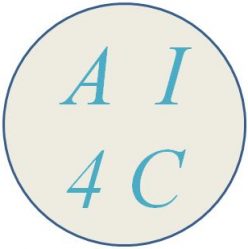The seminar is on December 4th at 10:00 14:00 and will be held remotely.
Link to the zoom session: https://us02web.zoom.us/j/84003686532
Jakob Runge presentation is entitled:
« Inferring causation from time series with perspectives in Earth system sciences »
Abstract:
The heart of the scientific enterprise is a rational effort to understand the causes behind the phenomena we observe. In disciplines dealing with complex dynamical systems, such as the Earth system, replicated real experiments are rarely feasible. However, a rapidly increasing amount of observational and simulated data opens up the use of novel data-driven causal inference methods beyond the commonly adopted correlation techniques. In this talk, I will present a recent Perspective Paper in Nature Communications giving an overview of causal inference methods and identify key tasks and major challenges where causal methods have the potential to advance the state-of-the-art in Earth system sciences. Several methods will be illustrated by `success’ examples where causal inference methods have already led to novel insights and I will close with an outlook of this relatively new and exciting field. I will also present the causal inference benchmark platform www.causeme.net that aims to assess the performance of causal inference methods and to help practitioners choose the right method for a particular problem.
Runge, J., S. Bathiany, E. Bollt, G. Camps-Valls, D. Coumou, E. Deyle, C. Glymour, M. Kretschmer, M. D. Mahecha, J. Muñoz-Marı́, E. H. van Nes, J. Peters, R. Quax, M. Reichstein, M. Scheffer, B. Schölkopf, P. Spirtes, G. Sugihara, J. Sun, K. Zhang, and J. Zscheischler (2019). Inferring causation from time series in earth system sciences. Nature Communications 10 (1), 2553.
Short bio:
Jakob Runge heads the Climate Informatics working group at the German Aerospace Center’s Institute of Data Science since 2017. The group combines innovative data science methods from different fields (graphical models, causal inference, nonlinear dynamics, deep learning) and closely works with experts in the climate sciences. Jakob studied physics at Humboldt University Berlin and obtained his PhD at the Potsdam Institute for Climate Impact Research in 2014. For his studies, he was funded by the German National Foundation (Studienstiftung) and his thesis was awarded the Carl-Ramsauer prize by the Berlin Physical Society. In 2014 he won a $200.000 Fellowship Award in Studying Complex Systems by the James S. McDonnell Foundation and joined the Grantham Institute, Imperial College, from 2016 to 2017. On https://github.com/jakobrunge/tigramite.git he provides Tigramite, a time series analysis python module for causal inference. For more details, see: www.climateinformaticslab.com
